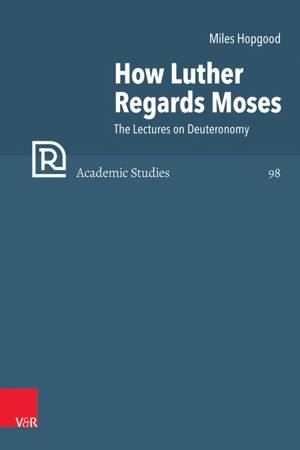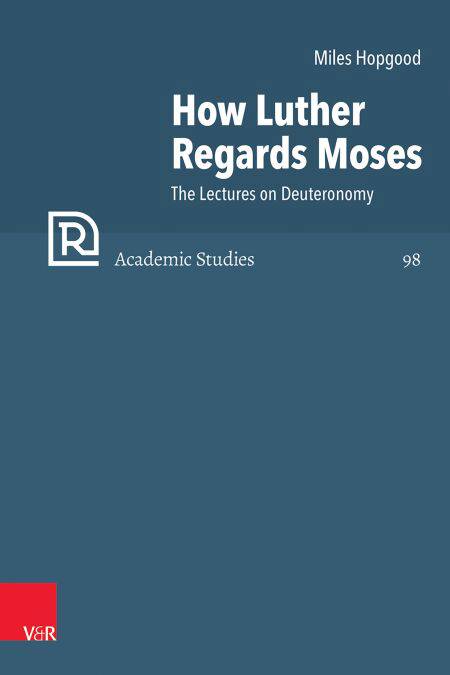
- Afhalen na 1 uur in een winkel met voorraad
- Gratis thuislevering in België vanaf € 30
- Ruim aanbod met 7 miljoen producten
- Afhalen na 1 uur in een winkel met voorraad
- Gratis thuislevering in België vanaf € 30
- Ruim aanbod met 7 miljoen producten
Zoeken
Omschrijving
Though undertreated by modern scholars, Martin Luther's lectures on Deuteronomy are critical to understanding his theological development as an exegete and also the course of the Reformation in the wake of Luther's return from the Wartburg in 1522. In these lectures, Luther engages deeply with Moses, whom he sees as an author, prophet, and ruler. These three ways of regarding Moses allow Luther to forge a new approach to the Mosaic law, shaping his response to what he perceives as the evangelical legalism of Andreas Karlstadt and Thomas Müntzer. By shedding light on these exegetical principles and connecting these lectures to surrounding events, Miles Hopgood brings new clarity as to why Luther broke with Karlstadt and the nature of his dispute with Müntzer, demonstrates the importance of the Hebrew Bible in shaping Luther's mature exegesis, and opens the door for fresh perspectives not only on the events of 1521-1525 but Luther's entire career as interpreter of scripture.
Specificaties
Betrokkenen
- Auteur(s):
- Uitgeverij:
Inhoud
- Aantal bladzijden:
- 213
- Taal:
- Engels
- Reeks:
Eigenschappen
- Productcode (EAN):
- 9783647500072
- Verschijningsdatum:
- 11/06/2023
- Uitvoering:
- E-book
- Formaat:

Alleen bij Standaard Boekhandel
+ 100 punten op je klantenkaart van Standaard Boekhandel
Beoordelingen
We publiceren alleen reviews die voldoen aan de voorwaarden voor reviews. Bekijk onze voorwaarden voor reviews.







